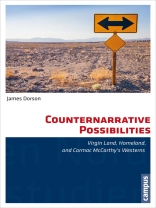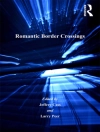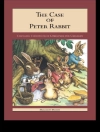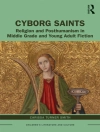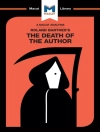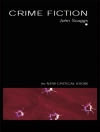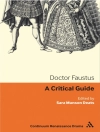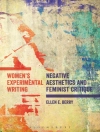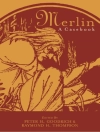Counternarrative Possibilities reads Cormac Mc Carthy’s Westerns against the backdrop of two formative tropes in American mythology: virgin land (from the 1950s) and homeland (after ‘9/11’ ). Looking at Mc Carthy’s Westerns in the context of American Studies, James Dorson shows how his novels counter the national narratives underlying these tropes and reinvest them with new, potentially transformative meaning. Departing from prevailing accounts of Mc Carthy that place him in relation to his literary antecedents, Counternarrative Possibilities takes a forwardlooking approach that reads Mc Carthy’s work as a key influence on millennial fiction. Weaving together disciplinary history with longstanding debates over the relationship between aesthetics and politics, this book is at once an exploration of the limits of ideology critique in the twenty-first century and an original reconsideration of Mc Carthy’s work ‘after postmodernism’.
Daftar Isi
Contents
Acknowledgements 9
Preface 11
Part I: Narratives and Counternarratives
1 The Power of Narrative 19
Connect the Dots 20
Closure and Emplotment 24
Narrative, Legitimacy, Force 28
Untranscendable Horizons 30
2 Counternarrative Possibilities 38
The Historicist Origins of the Counternarrative 39
Two Conceptions of Society 44
The Roles of Negation 49
‘Complicity Battling Redemption’: Counternarrative Tactics 58
Negative Closure 68
3 American Studies and the Virgin Land Myth 74
Indian-Hating and the Logic of Fetishism 75
The Myth and Symbol School’s ‘Doctrine of Doubleness’ 87
American Unexceptionalism: Violation and Revisionism 93
‘The Entire Planet as a Unit of Analysis’: Postnationalism and the New Americanists 100
4 American Studies and the Homeland Myth 108
The National ‘Wound’ 109
The Rhetoric of Rupture 118
The Eternal Homecoming 126
Metanostalgia 134
Part II: Cormac Mc Carthy’s Westerns Strings and Mazes: Introducing Cormac Mc Carthy 141
5 Blood Meridian and the Misrule of Law 151
Violence, Law, Westerns 153
The Primordial Crime 161
Judge Holden’s Economy of Justice 167
The Horror of the Real 173
6 Aesthetic Coldness 177
‘Things Are Seldom What They Seem’: Blood Meridian’s Anti-Realism 178
Into the Grand Hotel Abyss 182
The Violence of Form 185
The Monster of Reason 189
7 Blood Meridian’s Dangerous Absolutes 193
The Historical Absolute 194
The Desert Absolute 198
Absolute Instability 202
Mutual Accountability 207
8 Saving Romance from ‘America’ in the Border Trilogy 210
‘Another World Entire’: The Americanization of Romance 211
Reading the Border Trilogy through American Studies 219
Radical Longing and Fugitive Time 227
‘Ten Thousand Worlds for the Choosing’ 232
9 From Pastiche to Tragedy 238
Suffering Beyond Pastiche: Genre and Post-Postmodernism 240
Mourning the Sublime 250
‘That Which Is and Must Be’: The Punishment of John Grady Cole and Billy Parham 252
The Deconsecration of Capital 261
Conclusion: Perilous Ground 267
Between Loss and Longing 271
Perilous Ground 281
Bibliography 284
Index 302
Tentang Penulis
James Dorson is an assistant professor of North American Studies at the John F. Kennedy Institute of Freie Universität Berlin.
